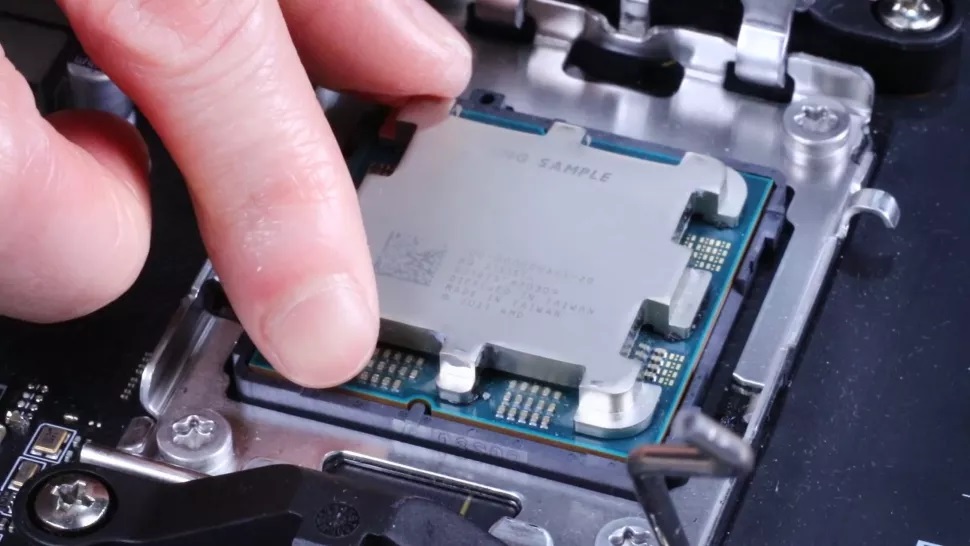
AMD may be gearing up to release its latest additions to its AM5 desktop processors, the Ryzen 5 8600G, featuring updated RDNA 3 graphics technology. These processors will be based on the mobile Hawk Point silicon, capable of incorporating up to 12 RDNA 3 Compute Units.
Despite the nomenclature, the Ryzen 8000G series is not a direct successor to the 7000 series. Instead, it's designed to cater to a distinct market segment that prioritizes integrated GPU performance over CPU capabilities.
Recent testing spotted by VideoCardz has provided insights into one of the upcoming 8000G SKUs, the Ryzen 5 8600G APU. Testing took place on an MSI X670E ACE motherboard, an unusual choice for an APU as it is typically paired with the very best processors from an enthusiast standpoint, not a more modest APU.
According to Geekbench 6 benchmark compute reports (found here and here), the Ryzen 5 8600G will boast 6 cores and 12 threads, differentiating it from its predecessor, the Ryzen 5 8500G. It's expected to employ 6 Zen 4 cores, a notable upgrade from the hybrid configuration of two Zen 4 and four Zen 4c cores in the 8500G.
The benchmark results also reveal a base clock of 4.35GHz and a boost clock reaching 5.0 GHz, a significant improvement over the Zen 3+ architecture-based Ryzen 5 5600G. As for GPU specifications, the APU will feature Radeon 760M integrated graphics, comprising 8 Compute Units clocked at 2.8 GHz.
The Ryzen 8000G series is expected to launch within the next couple of months, though AMD has not disclosed any specific launch events. But with CES 2024 right around the corner, there's a chance we'll get more details sooner rather than later.
Who needs an AMD APU at this point?
With the success of the AMD Ryzen 7000-series processors, which feature integrated RDNA 2 graphics, some might wonder if new AMD Ryzen 8000G-series chips are really needed.
In previous generations, like the Ryzen 5000-series, there was no integrated graphics in the main Ryzen releases like the AMD Ryzen 7 5800X3D, so having a chip like the Ryzen 5 5600G, which integrated RDNA GPU cores, made sense.
At this point though, even the upgrade to RDNA 3 cores doesn't make as much sense since, while more powerful, these cores aren't going to be so much more powerful on their own to replace having one of the best graphics cards in your PC for gaming purposes, and having a regular Ryzen 7000 chip in your mini PC is going to be more than sufficient for non-gaming purposes.
Still, for budget builders who are looking to make their little cousins a Fortnite rig on the cheap, these chips might be just what they're looking for when even the best cheap graphics card still costs a couple hundred dollars.







